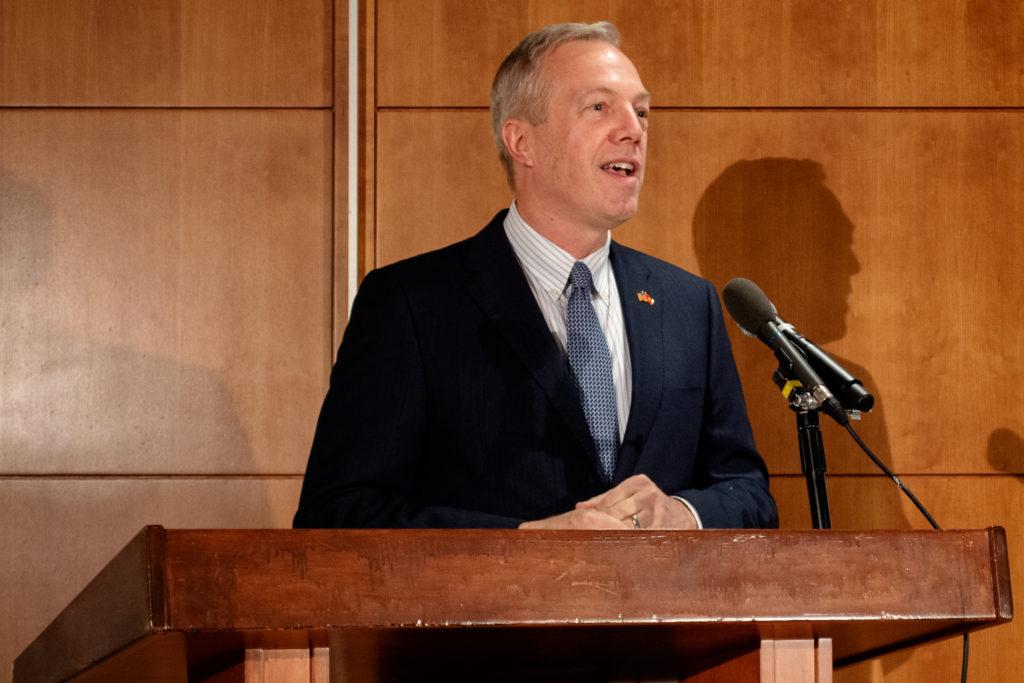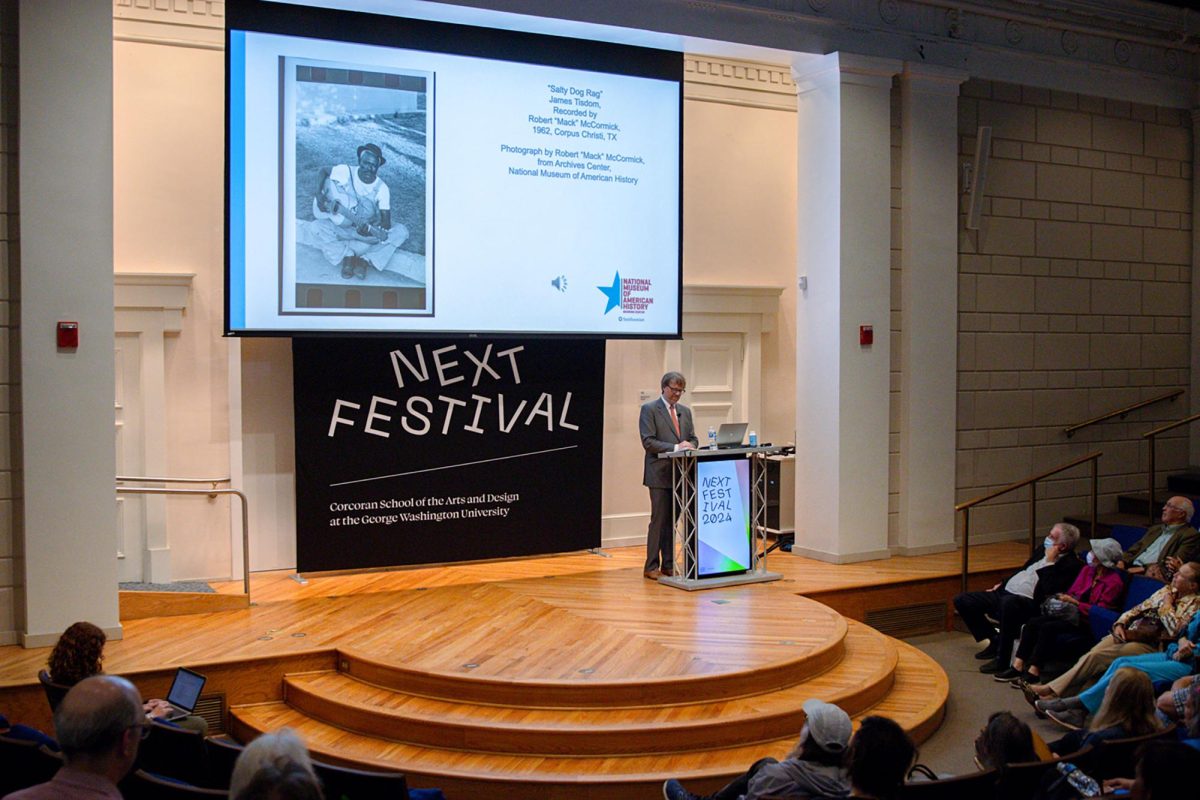A former U.S. ambassador to Vietnam reviewed the history of U.S.-Vietnam relations and its effect on U.S. diplomats as part of an annual lecture at the Elliott School of International Affairs Tuesday.
Ted Osius, the former U.S. ambassador to Vietnam, discussed his new book, “Nothing is Impossible: America’s Reconciliation with Vietnam” during the Institute for Public Diplomacy and Global Communication’s 2021-2022 Walter Roberts Lecture – an annual event featuring “prominent and distinguished” foreign policy experts. More than 20 people attended the event, which was hosted in conjunction with the Sigur Center for Asian Studies and moderated by IPDGC Director Janet Steele.
Osius explained how the U.S. reconciled with Vietnam after the war, which shaped his experiences in diplomacy – a field where cooperation helps build the trust needed for strong relationships. He said the stories of his experiences in Vietnam as a foreign service officer and later as a U.S. ambassador after the war demonstrate how cooperation and trust laid the foundation for America’s reconciliation with Vietnam.
He said while people think diplomacy consists of money and power, trust and cooperation must also work together to enable partnerships between nations.
“Reconciliation is about people, so the book is stories of people who I think were very brave on the American side and on the Vietnamese side in bringing about reconciliation,” Osius said.
He said the night when then-U.S. senators and Vietnam War veterans John Kerry and John McCain met on a flight to Kuwait in 1991 was critical to post-war reconciliation because it started a conversation about America’s strategic relationship with Vietnam. Osius said the pair became unlikely friends during the flight despite even though they were political opponents and held contrasting perspectives on the Vietnam War.
He said the partnership led Kerry and McCain to form the Senate Select Committee on Prisoner of War and Missing in Action Affairs to inform the American public that the Vietnamese were not holding American soldiers as prisoners – a narrative that previously stalled reconciliation with Vietnam.
“What they discovered working with the Vietnamese during this time was that the Vietnamese were absolutely going to be cooperative,” Osius said. “They wanted a normal relationship with the United States.”
Osius said the White House didn’t have enough expert advisers during the Vietnam War because McCarthyism had purged the State Department of its experts in East Asia. He said North Vietnam President Ho Chi Minh had actually been inspired by the ideals of the American revolution when declaring Vietnam’s independence, and Vietnam could have been an ally with America against China.
“The number one existential challenge to the Vietnamese has always throughout their history been China,” he said. “Not France. Not the United States.”
Osius said he advocated for Vietnamese General Secretary Nguyễn Phú Trọng’s visit to the Oval Office in 2015 – one of his most significant accomplishments as a diplomat. He said the visit encouraged Vietnam to adopt workers’ rights, and create Fulbright University – a university in Vietnam with academic freedom – and join the Trans Pacific Partnership – a trade agreement between the United States, Vietnam and 10 other countries along the Pacific Rim, which former President Donald Trump pulled out of in 2017.
Osius said many White House officials opposed the visit, but if it never took place, Vietnam wouldn’t have cooperated with the U.S. on trade, security, environmental or health issues.
“It’s not necessarily in a diplomat’s DNA always to take risks,” Osius said. “My lesson is sometimes it’s worthwhile to take a risk.”
Osius said the Vietnamese people referred to him as “the people’s ambassador” when he was in Vietnam because he was dedicated to public diplomacy.
He said while biking in Vietnam, he met a woman who lost family and friends during the war. He said she treated him like family instead of directing animosity toward his American identity, personifying the progress of the two countries’ relationship.
“It’s this willingness to move forward, to look forward and to put the past behind them,” Osius said. “We had a much harder time doing that than the Vietnamese did.”








